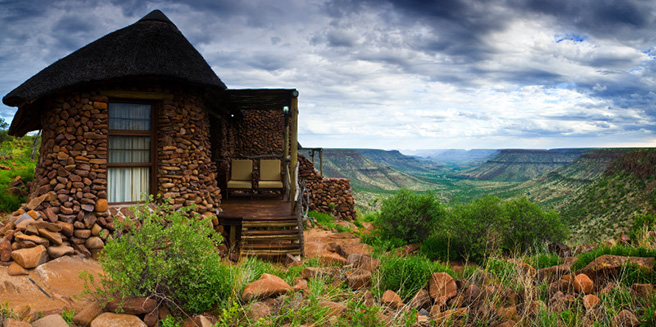Consider a Conservation Lodge

The African continent is home to some of the world’s most amazing wildlife and natural wonders. Yet rural communities see little value in their wildlife neighbors, as growth in human population and changing climatic conditions place increasing strain on the continent’s natural resources.
Conservation of wildlife and wild lands can offer economic benefits for Africa’s people, however. One way is through the development of conservation tourism. The African Wildlife Foundation (AWF) has worked with communities throughout the continent to establish a number of such tourism enterprises, from mid-market camps to exclusive luxury getaways.
Before developing a conservation tourism facility, AWF first examines the business case and conservation objective. We then work with a local community to mitigate the conservation threats, whether it is protecting the key wildlife corridors or eliminating encroachment on forests, for example. In return for the conservation agreement, AWF helps the community identify a private sector partner.
Joint Effort
The key is to create successful business ventures that provide communities the economic incentives to conserve wildlife and their natural surroundings. While the community agrees to set aside and protect land for conservation, the private sector partners bring the needed experience and expertise in developing and managing high-quality tourist facilities.
The actual development of the facility is a joint effort, with the community providing the land, AWF typically providing financial support for lodge construction, and the private partners providing additional capital for the furniture and fittings.
The end results are beautiful facilities set in picturesque, wildlife-rich landscapes, in many cases owned by local communities and managed by hospitality and safari experts. These lodges employ local individuals, pay rent to the communities and share the business revenues with those same communities. Most importantly, they provide the economic incentive for local communities to conserve and protect the wildlife and wild lands around them, ensuring that Africa’s wildlife remains for Africans, and citizens the world over, to enjoy for generations to come.